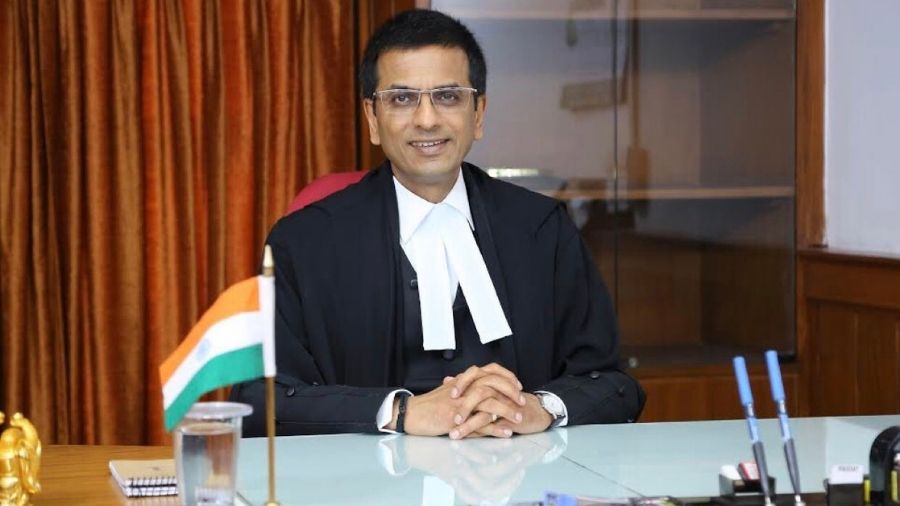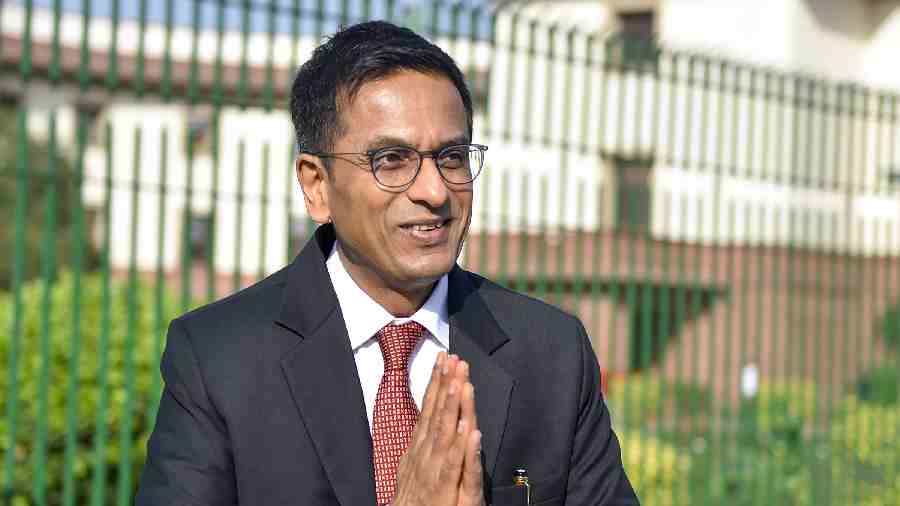It is the responsibility of all decision makers not just judges to ensure that the law does not become an instrument of oppression but remains an instrument of justice, Chief Justice of India D Y Chandrachud said on Saturday.
Justice Chandrachud, while speaking at the Hindustan Times Leadership Summit, said it is great to have expectations from citizens but "we need to understand the limits as well as the potentiality of the courts as institutions".
"Sometimes the law and justice do not necessarily follow the same linear trajectory. The law can be an instrument of justice but the law can be an instrument of oppression as well. We know how in colonial times the same law, as it exists in the statute books today, could be used as an instrument of oppression," he said.
"So, how do we ensure, as citizens, that the law becomes an instrument of justice and the law does not become an instrument of oppression. I think the key is the way in which we handle the law which includes all decision makers and not just judges," the Chief Justice of India (CJI) said.
What sustains judicial institutions, in the long run, is the sense of compassion, sense of empathy and ability to answer cries of citizens, he said.
"When you have the ability to hear unheard voices in your system, (see) unseen faces in the system and then see where the balance between the law and justice lies then you can truly perform your mission as a judge," Justice Chandrachud said.
Social media has posed one of the greatest challenges as there is real-time reporting of every little word that a judge says in courtrooms and "you are constantly evaluated as a judge", he said.
"There is real-time reporting of every word that a judge says in the court. Those of you who are lawyers will be able to tell your colleagues that everything said by a judge during a course of conversation in the court does not reflect either the mind of the judge or the ultimate conclusion that the judge would arrive at," the CJI said.
"The process of judging that goes on in the courts is dialogic. There is free flowing dialogue between lawyers in the court and the judges between themselves in an effort to unravel the truth," he said.
Justice Chandrachud said that "we live in the era of internet and social media which is here to stay".
"So, I do believe that we need to fashion, re-engineer, find new solutions, retrain, recoup, rethink our role in trying to understand how we meet the challenges of the age we are living in," he said.












